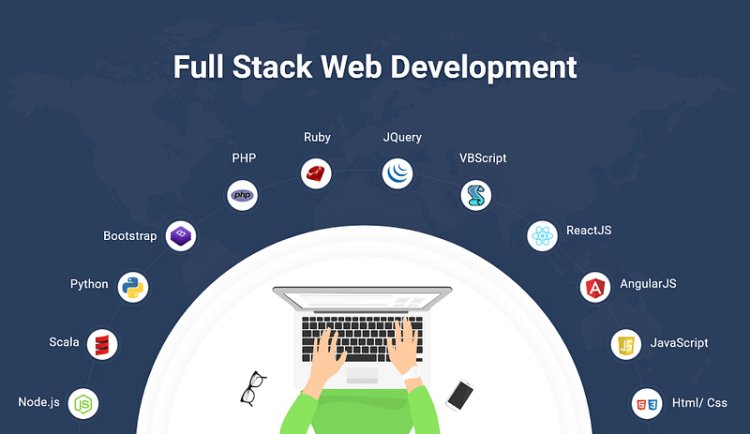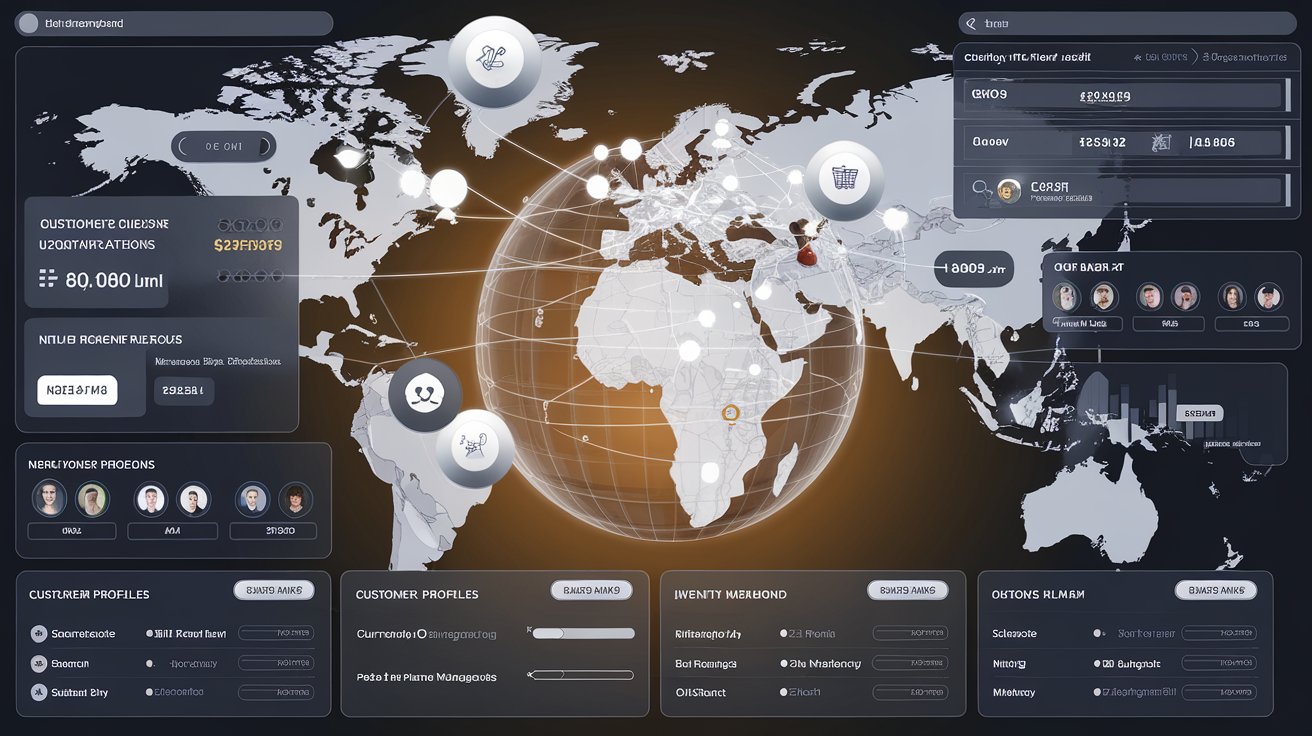Full-Stack AI Development: Trends to Watch

Strong 8k brings an ultra-HD IPTV experience to your living room and your pocket.
Artificial Intelligence (AI) is no longer just a buzzword or a futuristic concept — it has become a fundamental part of many businesses and technologies today. From personalized recommendations on your favorite shopping sites to smart assistants like Siri and Alexa, AI is everywhere. But behind these AI-powered solutions, there is a growing need for skilled developers who can build complete AI systems — this is where full-stack AI development comes in.
To bring such end-to-end AI solutions to life, partnering with a reliable Full-Stack Development Company is essential. These companies offer the expertise needed to handle everything from data preprocessing and model training to front-end integration and cloud deployment, ensuring a seamless and scalable AI product.
In this blog, we will explore what full-stack AI development means, why it matters, and the top trends to watch in 2025 and beyond. The goal is to keep the language simple and clear so everyone can grasp the exciting changes happening in this space.
What is Full-Stack AI Development?
You might have heard the term full-stack developer in traditional software development. A full-stack developer is someone who works on both the front end (what users see) and the back end (the server, databases, and logic) of an application.
Full-stack AI development is similar but specifically focused on AI projects. It means handling every part of an AI system, including:
Data collection and processing: Gathering and cleaning the data needed for AI models.
Model development: Creating, training, and testing AI algorithms.
Integration: Connecting AI models with applications or platforms so users can benefit from AI features.
Deployment and maintenance: Launching AI services in real environments and continuously improving them.
A full-stack AI developer knows how to work across these layers, bridging the gap between data science, software engineering, and AI research.
Why Is Full-Stack AI Development Important?
AI projects are complex. They need massive amounts of data, efficient algorithms, scalable infrastructure, and seamless integration. Often, teams work in silos — data scientists build models, engineers deploy them, and front-end developers create the user interface. This can cause delays, miscommunications, and errors.
Full-stack AI developers help solve this by understanding all the parts. They can speed up the development process, improve collaboration, and create better products that work well in real life. Companies hiring full-stack AI talent benefit from faster innovation and stronger AI-driven solutions.
Trends to Watch in Full-Stack AI Development
Now that you know what full-stack AI development is and why it’s crucial, let’s dive into the biggest trends shaping this field today.
1. Automation of AI Pipelines
Building AI models manually is time-consuming. Full-stack AI developers are increasingly relying on automation tools that handle repetitive tasks like data cleaning, feature selection, and model tuning.
These AutoML (Automated Machine Learning) platforms allow developers to focus on problem-solving rather than technical nitty-gritty. Tools like Google’s AutoML, H2O.ai, and Microsoft’s Azure AutoML are gaining popularity because they reduce development time and improve model accuracy without deep AI expertise.
In the future, automation will become a standard part of full-stack AI development, making it easier for smaller teams and startups to build powerful AI products.
2. Edge AI and On-Device Processing
Most AI models today run in the cloud, meaning data is sent to powerful remote servers for processing. But this can cause delays, higher costs, and privacy concerns.
Edge AI refers to running AI models directly on devices like smartphones, IoT sensors, or drones. Full-stack AI developers are now building systems that can operate offline or with minimal cloud interaction. This is crucial for applications like real-time health monitoring, autonomous vehicles, and smart home devices.
Edge AI requires developers to optimize models to be smaller and faster without losing accuracy — a big challenge but a rewarding one.
3. Explainable AI (XAI)
As AI systems impact critical decisions in healthcare, finance, and law enforcement, people want to understand how AI reaches its conclusions. This is where Explainable AI (XAI) comes in.
Full-stack AI developers are incorporating explainability features that show users the reasoning behind AI decisions. This transparency builds trust and helps developers debug or improve models.
New tools and frameworks are emerging to make AI models interpretable without sacrificing performance. For example, techniques like SHAP values, LIME, and attention mechanisms provide visual insights into AI predictions.
4. Multi-Modal AI Systems
Traditional AI models often focus on one type of data — text, images, or audio. But the latest trend is multi-modal AI, which combines multiple data types to understand complex scenarios better.
For instance, a multi-modal AI could analyze videos (visual + audio) to detect suspicious activity or combine text and images for enhanced customer support chatbots.
Full-stack AI developers are tasked with designing pipelines that can handle diverse data streams, synchronize them, and build models that learn from all sources simultaneously. This requires advanced data engineering skills and innovative model design.
5. AI Ethics and Responsible Development
With great power comes great responsibility. AI systems can unintentionally embed bias, invade privacy, or be used maliciously. In 2025, ethical AI development is more important than ever.
Full-stack AI developers now often include fairness checks, privacy-preserving methods, and bias mitigation techniques in their workflows. They also comply with emerging regulations like GDPR and the AI Act in Europe.
Building responsible AI means testing models thoroughly, documenting decisions, and sometimes involving ethicists or legal experts during development.
6. Integration of AI with Cloud-Native Technologies
Cloud computing and AI go hand in hand. But the next big thing is the rise of cloud-native AI development, where AI applications are designed to run on containerized platforms like Kubernetes.
Full-stack AI developers use microservices architecture to break down AI applications into smaller, manageable parts. This approach makes it easier to update, scale, and maintain AI systems.
Popular cloud providers like AWS, Google Cloud, and Azure offer specialized AI services that fit into cloud-native workflows. Learning how to leverage these tools is becoming a must-have skill.
7. Natural Language Processing (NLP) Advances
Natural Language Processing, which deals with understanding and generating human language, is rapidly advancing. Models like OpenAI’s GPT series and Google’s BERT have transformed how machines understand text.
Full-stack AI developers are using these powerful language models to build chatbots, virtual assistants, and content generators that feel natural and helpful.
In the near future, expect even more capable NLP models that understand context better, support multiple languages, and handle conversations with greater accuracy.
8. AI-Powered DevOps (AIOps)
Maintaining AI systems is tricky because models degrade over time, data changes, and software environments evolve. Enter AIOps — the use of AI to manage AI applications.
Full-stack AI developers are adopting AI tools that monitor system health, detect anomalies, and automate routine fixes. This reduces downtime and improves user experience.
AIOps also helps in scaling AI workloads dynamically, ensuring optimal use of computing resources and cost efficiency.
Skills Needed for Full-Stack AI Developers in 2025
To stay ahead in full-stack AI development, here are the key skills developers should build:
Data Engineering: Expertise in handling big data, databases, and ETL (Extract, Transform, Load) processes.
Machine Learning & Deep Learning: Solid understanding of algorithms, neural networks, and frameworks like TensorFlow or PyTorch.
Software Development: Knowledge of backend and frontend languages such as Python, JavaScript, and experience with APIs.
Cloud Platforms: Familiarity with AWS, Azure, or Google Cloud AI services.
DevOps: Experience with containerization (Docker, Kubernetes) and CI/CD pipelines.
AI Ethics: Awareness of bias, fairness, privacy, and regulations.
Conclusion
Full-stack AI development is an exciting and evolving field that bridges multiple disciplines. It demands a broad skill set and an ability to work from raw data all the way to fully deployed AI-powered applications.
Partnering with a trusted provider of Software Development Services can help businesses leverage full-stack AI development effectively. These services ensure seamless integration of AI technologies across the entire software stack, delivering intelligent, scalable, and robust solutions tailored to specific business needs.
By keeping an eye on trends like automation, edge AI, explainability, and ethical AI, developers and companies can build smarter, faster, and more trustworthy AI systems.
Whether you are a developer looking to expand your skills or a business planning to adopt AI, understanding these trends will help you navigate the future of AI development with confidence.
The AI revolution is here — and full-stack AI developers are the architects building the future.
Note: IndiBlogHub features both user-submitted and editorial content. We do not verify third-party contributions. Read our Disclaimer and Privacy Policyfor details.







